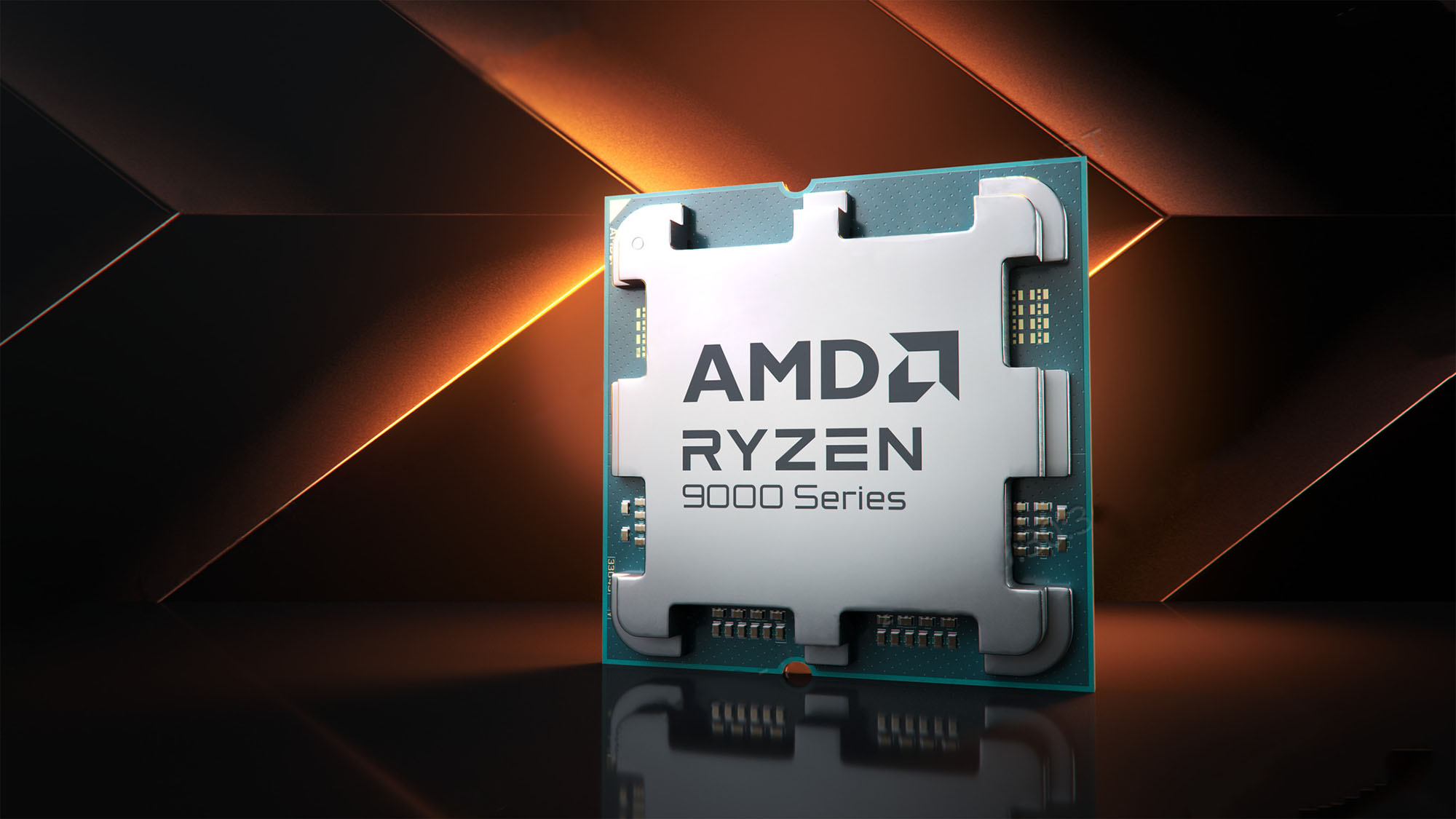
AMD unveiled its latest lineup of processors at Computex 2024 this week, with the AMD Ryzen 9000-series desktop processors leading the pack.
The AMD Ryzen 9000-series is the follow up to AMD's 7000-series processors released back in 2022, and feature about 15% faster performance over their comparable predecessor chips, according to AMD.
The 9000-series is built using the next-gen AMD Zen 5 architecture, a major step up from the Zen 4 cores used in the Ryzen 7000-series. According to AMD, the Ryzen 9000-series will get up to twice as much instruction bandwidth, L2 to L1 and L1 to FP data bandwisth, and improved AI performance thanks to AI and AVX512 throughput. Across various apps from gaming to creative content work, the new Zen 5 chips should get about 16% IPC uplift over Zen 4, which translates directly into faster, more responsive performance on your PC.
The launch lineup for the Ryzen 9000 series will include the following chips with general specs given per chip:
Noticeably absent are any 3D V-Cache variants, as well as a Ryzen 9800X, though these chips are surely planned for later this year or early next. According to AMD, the Ryzen 9000 series processors will be available starting in July 2024, though pricing for the processors is still unknown at this time.
Also of note is that the Ryzen 9 9900X has a roughly 50W lower TDP than the Ryzen 9 7900X, so there have also been some efficiency improvements, which are always a plus.
While the new Zen 5 cores might be tricked out with new hardware and features, the Ryzen 9000-series does not seem to have a dedicated NPU, so any AI work on these chips will have to be done the old fashioned way, namely with your graphics card.
AMD beats Intel to the desktop market again, this time with some room to spare before Intel Arrow Lake
These new AMD Ryzen chips have managed to beat Intel to the market with their next-gen desktop processors, which should definitely help give AMD a boost for a few months while we all wait for Arrow Lake to launch toward the end of the year. Considering that Intel hasn't even announced Lunar Lake yet, it might be a while before Intel can make it to market with its latest desktop silicon, giving AMD a pretty wide field to run in on its own for a while.
This is definitely helped by the fact that the Ryzen 9000-series processors will socket into any AM5 motherboard, so if you've got a last-generation Ryzen chip and you want to make the upgrade, you won't have to buy any additional equipment to do so.
All Ryzen 9000 chips will (only) support DDR5, and there are dedicated PCIe 5.0 support for both graphics and NVMe SSDs at the same time, so you won't have to sacrifice PCIe 5.0 SSD speeds when PCIe 5.0 graphics cards are finally introduced.
So now that AMD has thrown down the gauntlet, we'll have to wait and see what Intel does later this year.
- Follow all the latest news out of Computex 2024 to stay up to date with everything going on in Taipei







